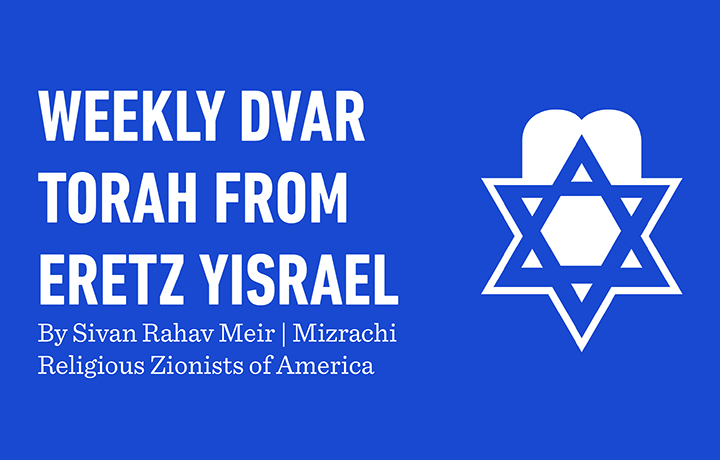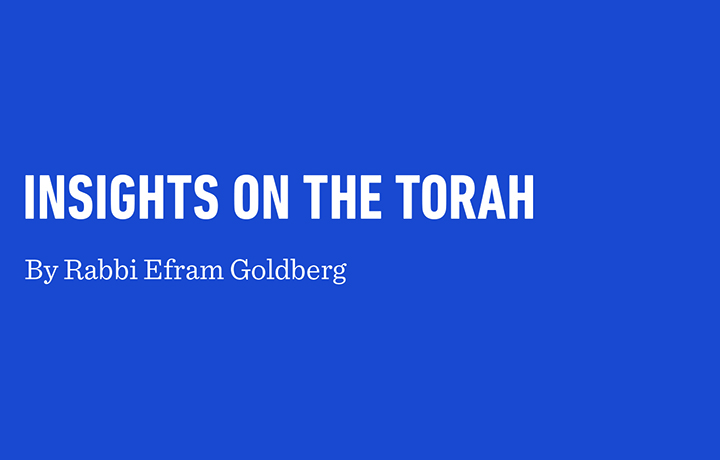Memory’s Reach
All five books of the Torah were authored by Hashem and transmitted through Moshe Rabbeinu. Yet the final book, Devarim, is markedly different. Here, Moshe speaks in his own voice. The tone shifts. The words are more human, more emotional. Though still Divinely delivered, the speech is filtered through the heart and voice of a leader bidding farewell.
The Torah’s word is eternal, reaching beyond time and space. But its very loftiness can sometimes feel distant from the rhythms of human experience. In retelling the Torah through a human lens, Moshe draws it down to our world. He reframes the Divine voice in human terms, grounding eternal truths in the language and struggles of everyday life.
In his final soliloquy, Moshe introduces little new material. Instead, he revisits the major events of the past forty years: the awe-inspiring miracles and the devastating failures. He also reiterates most of the commandments previously delivered. His purpose is not to instruct, but to remind—to awaken memory in a new generation and to help them relive their historic acceptance of Hashem’s will.
Moshe doesn’t hint at the importance of remembering the past—he declares it forcefully. In the two sections of V’etchanan and Eikev, he explicitly pleads with the nation at least thirteen times to remember and not forget. He is not merely pointing to their past memories; he is directly asking them to hold these moments close and embed them in their collective identity.
The original generation that left Egypt had no past. Slavery severs a person from their history, erasing identity, and dulling memory. Cut off from all that came before, heritage fades beneath the weight of relentless oppression.
This new generation, however, was different. As young adults, they had lived through the highs and lows of the past forty years. By remembering the journey of the wilderness, they could also reach further back into the distant past, into the promises made to their ancestors. Moshe expected them to carry not just commandments, but memory, to live with a deep attachment to both personal experience and national legacy.
Memory shapes personal identity. Living a life rooted in memory deepens our experiences by linking them to earlier insights and emotions. It adds texture and resonance to our lives, allowing us to carry the fullness of past joys, struggles, and lessons into each present moment. Memory thickens the soul and lends depth to the human journey.
A life attuned to memory also strengthens our sense of self. By remaining consciously connected to our past, we remember who we are, where we come from, and what truly matters. This rootedness helps us to respond with thoughtfulness rather than reacting impulsively, giving our lives direction and coherence. Memory carves and anchors identity.
While personal memory, or memories of our own past, deepens experience, collective memory weaves us into a larger narrative, anchoring us within a shared identity, and extending our sense of self beyond the limits of individual time and place.
Living with shared memory keeps us humble and grateful. It reminds us that our own accomplishments pale beside the heroism and dedication of the generations that preceded us who faced enormous challenges. This awareness helps us avoid taking things for granted or becoming absorbed in our personal successes.
Additionally, a heritage-infused experience deepens the resonance of our values. Recognizing that these principles have endured the test of time and have been the foundation of lasting success makes them profoundly compelling. They radiate with the wisdom and validity drawn from the triumphs of the past.
Finally, a legacy-rooted identity tempers our reactions to present challenges. A broader perspective anchored in our shared heritage helps us see beyond immediate frustrations and difficulties, revealing enduring ideas that have shaped our history and will continue to guide our shared journey.
We are a people of memory. Each week during Shabbat, we recall Hashem as Creator. Through national and historical milestones, we remember how He redeemed us and shaped our journey. In response to witnessing the commemoration of either Pesach or Tishah B’Av (though it’s unclear which), it is said that Napoleon remarked that the soldiers who uphold their ancient customs and celebrate their freedom with such fervor cannot be defeated. Various Jewish lifecycle events—bar and bat mitzvah in particular—mark personal milestones that remind us that we stand on the shoulders of those who came before. Customs, or minhagim, bind individuals to specific strands of Jewish history, linking our halachic practice to the experiences of distant Jewish communities across time.
Halacha, customs, and Jewish culture together ensure that we live with an identity richly infused by shared memory. Memory shapes us, binds us, and carries us forward together.
Yet, our world moves too fast and stretches too wide for memory to keep pace. The flood of information creates overload, drowning our ability to pause and absorb. Memory is like a quiet pond where thoughts settle and the past is slowly distilled in calm rhythms. The modern world is more like a roaring river, rushing endlessly, denying us the stillness and reflection. Without stillness, our connection to who we are and where we come from risks being swept away, lost in the current of constant distraction.
In today’s world, memory faces new challenges. We’ve outsourced our memories. With everything stored digitally and always accessible, we feel no need to carry the past within ourselves. Yet these memories remain intangible, never fully lived or embodied. This detachment breeds the modern affliction called “digital amnesia.” Our history exists somewhere out there, but without grounding in us, it slips away like mist—fragile and fleeting.
Memory struggles not only against technology but also against a culture focused solely on the future. We live in an age obsessed with the future, convinced that tomorrow will bring a better world and solve all our problems. In this rush forward, the past feels obsolete, dismissed as mere nostalgia, something quaint and distant, fit for casual conversation but no longer a vital part of our identity. This detachment weakens the roots that connect us to who we are.
Less is more. Slowing down, taking in less, and turning our gaze from the endless future back to the past helps us grow stronger and feel more alive. The past isn’t just nostalgia—it needs to live in the here and now.
Memory is essential, it deepens our experience and helps build our shared identity. In Israel, it’s even more vital, reminding us that we are part of a larger, unfolding saga. In this prolonged struggle to defend our people, memory becomes a lifeline. As the war prolongs, we face fatigue, confusion, division, and mounting international opposition.
We need perspective. We have endured far worse storms and have always risen above the greatest barriers.
We need stamina. The journey is long, and the finish line may lie beyond our reach. But we are not asked to finish, only to move forward.
We need largeness of mind, not smallness of spirit. What matters are the long-term costs and benefits of policy and strategy—not short-term gains that soothe our emotions or reinforce our ideological comfort zones.
Memory is our anchor—it grants us perspective, builds resilience, and expands our vision.
Don’t forget to remember.
Rabbi Moshe Taragin is a rabbi at the hesder pre-military Yeshivat Har Etzion/Gush, with YU ordination and an MA in English literature. His books include To Be Holy but Human: Reflections Upon My Rebbe, HaRav Yehuda Amital, available at MTaraginBooks.com.













